Marco* is a little boy who could not take it anymore and after being held for four years in a foster home more than 400 kilometers away from home, where he had been taken and locked up without any explanation, escaped returning to his mother by walking and with makeshift means. When Marco was picked up at 12 from middle school, he was wearing shorts and a T-shirt, and no one had allowed him to take any clothes before he was loaded into the car and taken away.
Stolen children
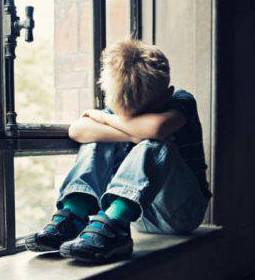 His mother, who was unaware of everything until she realized what was happening that very morning, did not know that the facility where she had taken her son for obesity problems, had paid attention to the social services which turned to the juvenile court where it was decided to remove the boy from his home becayse of presuming a “symbiotic” relationship with his mother.
His mother, who was unaware of everything until she realized what was happening that very morning, did not know that the facility where she had taken her son for obesity problems, had paid attention to the social services which turned to the juvenile court where it was decided to remove the boy from his home becayse of presuming a “symbiotic” relationship with his mother.
A woman who had been left by her husband, a thief who mistreated and beat her, and who lived with another child and her mother in a dignified manner
As if she had woken up in a nightmare, which from that moment on seemed infinite, Maria struggled a lot to put the pieces back together and to understand who, how and why her son had been taken away, as the court had decided. Without ever calling her or listening to her but relying exclusively on the report made by the psychologist of the center and then by the social services who had drawn a profile of a disturbed child, who in reality was only a victim of bullying at school.
Marco: psychotropic drug therapy and walking home
A mother who has not seen her son for nine months and even when she was allowed to meet him, she was always under the strict control of the operators of the center. Marco, who had been subjected to psychotropic drug therapy, never returned home. “There was neither Christmas nor Easter for me, not even a birthday I was able to spend at home.
 They kept me closed even in August and when I saw my friends going home for the holidays, I was terribly upset” he says with a broken voice. “I kept asking to speak to the judge, because I didn’t understand why they treated me like this, I didn’t do anything. And they always denied it to me. And that’s why at a certain point I decided to escape at the cost of returning to my house by walking: I couldn’t take it anymore, I was going crazy. And when I finally talked to the judge it turned out that they had forgotten about me, that they had never checked again as the services and operators had never provided updated reports on me, giving me another two years inside of the structure”.
They kept me closed even in August and when I saw my friends going home for the holidays, I was terribly upset” he says with a broken voice. “I kept asking to speak to the judge, because I didn’t understand why they treated me like this, I didn’t do anything. And they always denied it to me. And that’s why at a certain point I decided to escape at the cost of returning to my house by walking: I couldn’t take it anymore, I was going crazy. And when I finally talked to the judge it turned out that they had forgotten about me, that they had never checked again as the services and operators had never provided updated reports on me, giving me another two years inside of the structure”.
Stories of institutional violence
 However, that of Marco and Maria is only one of the many stories of “Invisible Crimes”: the 11-part investigation on which I have worked on for years and which is published every week (from November 23 onwards) on Donnexdiritti.com the web newspaper that I have been directing for almost a year. Stories of institutional violence that I investigated, going around Italy, and that I wanted to publish in the days of the International Day against Male Violence against Women, because I believe that at this moment institutional violence, the secondary victimization of women in Court, the concealment of mistreatment in the family reduced to gender conflict and child abuse, is precisely the core that prevents us from realistically contrasting gender-based violence and femicide that are overwhelmingly consumed in the family.
However, that of Marco and Maria is only one of the many stories of “Invisible Crimes”: the 11-part investigation on which I have worked on for years and which is published every week (from November 23 onwards) on Donnexdiritti.com the web newspaper that I have been directing for almost a year. Stories of institutional violence that I investigated, going around Italy, and that I wanted to publish in the days of the International Day against Male Violence against Women, because I believe that at this moment institutional violence, the secondary victimization of women in Court, the concealment of mistreatment in the family reduced to gender conflict and child abuse, is precisely the core that prevents us from realistically contrasting gender-based violence and femicide that are overwhelmingly consumed in the family.
When I started thinking about “Invisible Crimes” I already knew what I was going to face, since I have been dealing with it for some time both as a journalist and as a human rights expert
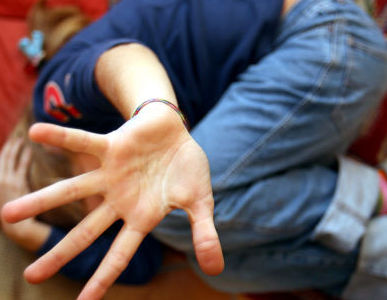 I knew that giving a voice to the women and children who have crossed the dark and infinite wall of institutional violence would have been a strong investment not only of time but also of very strong emotions, those that shake you and do not make you sleep at night. Women who have survived both the violence of an abusive husband, but above all the violence of those institutions that not only have not acknowledged the need for protection of these women, but who have exposed them together with their children, voluntarily concealing the reports of domestic violence, making them responsible for “having sought it”, blaming them for the refusal of a frightened child and victim of abuse or witnessed violence, and putting on the same level the abusive partner and the survivor who tries to separate from an abusive context, forcing family mediation which in these cases is also prohibited by the Istanbul Convention. These are stories with emblematic titles: “Hunted”, “Revenge”, “Torn children”, “The harsh truth”, “Without mercy”, “Escape to freedom”, “Living in fear”, because these are the words that they use when they tell what happened.
I knew that giving a voice to the women and children who have crossed the dark and infinite wall of institutional violence would have been a strong investment not only of time but also of very strong emotions, those that shake you and do not make you sleep at night. Women who have survived both the violence of an abusive husband, but above all the violence of those institutions that not only have not acknowledged the need for protection of these women, but who have exposed them together with their children, voluntarily concealing the reports of domestic violence, making them responsible for “having sought it”, blaming them for the refusal of a frightened child and victim of abuse or witnessed violence, and putting on the same level the abusive partner and the survivor who tries to separate from an abusive context, forcing family mediation which in these cases is also prohibited by the Istanbul Convention. These are stories with emblematic titles: “Hunted”, “Revenge”, “Torn children”, “The harsh truth”, “Without mercy”, “Escape to freedom”, “Living in fear”, because these are the words that they use when they tell what happened.
Anna: my son touched by his father in the private parts
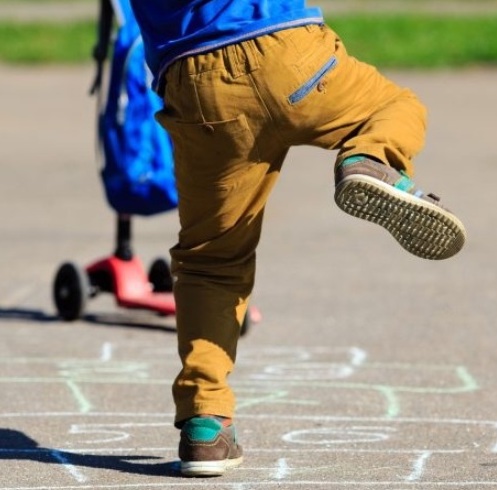 Like Anna, who in “Hunted”, the first episode of this investigation, tells of how she has been fighting for almost 10 years to protect her son since he himself told her of his father’s abuses: “We were already separated and the child was going to see the father in the house where he moved, until one evening my son tells me he doesn’t want to go there anymore. I ask him why and he tells me that his father touched him in the private parts. He gives me kisses on the mouth, but they are not beautiful kisses mom, they are not beautiful kisses” she tells me, telling other details. “I wanted to die – Anna explains -, and I immediately called my lawyer. Then I also reported it, but I was not heard, and it was there that I began to understand what I had happened in, since not only was there no investigation, but the Court decided to entrust my son to his father with exclusive custody, because for them it was me who incited my son to refuse him without any real reason”.
Like Anna, who in “Hunted”, the first episode of this investigation, tells of how she has been fighting for almost 10 years to protect her son since he himself told her of his father’s abuses: “We were already separated and the child was going to see the father in the house where he moved, until one evening my son tells me he doesn’t want to go there anymore. I ask him why and he tells me that his father touched him in the private parts. He gives me kisses on the mouth, but they are not beautiful kisses mom, they are not beautiful kisses” she tells me, telling other details. “I wanted to die – Anna explains -, and I immediately called my lawyer. Then I also reported it, but I was not heard, and it was there that I began to understand what I had happened in, since not only was there no investigation, but the Court decided to entrust my son to his father with exclusive custody, because for them it was me who incited my son to refuse him without any real reason”.
Roberto, however, falls ill, is hospitalized for months in hospital, and when he leaves, he carries the after-effects of this disease that could always recur
But this does not matter to the judges, psychologists, social workers, guardians, curators who are gradually appointed in this intricate and sad story, because the child must be brought into a foster home, even in the face of a health risk, because it’s there where the resumption of the paternal relationship will be imposed on him, completely cutting out the one with the mother who cared for and raised him, and whom Roberto considers his main reference figure, since she is the mother.
Failed paternity
A maternity that succumbs to a lack of paternity which, for purely cultural reasons, has a different value: stronger and more credible, even if the man is described as mistreating and abusive, perhaps with complaints or a pending criminal case.
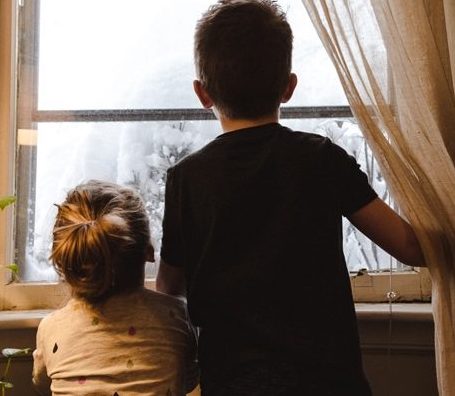 Thus, the reports of fear and anguish, the stories of violence and abuse, are lost, do not count, are not investigated but archived, and indeed it is the mother who is considered “symbiotic”, “alienating”, “entangling”, and therefore it is her fault, it is she who is dangerous, it is from her that the child must be removed even by force, if necessary, because what she tells are all lies, false accusations. “The judge asked me to withdraw the complaint I had made, otherwise he would put the child in the foster home – continues Anna – and then, after I withdrew it under threat, they said that the allegations of violence were not true because I had retracted. To which I asked myself: what is this? A crazy circus? ».
Thus, the reports of fear and anguish, the stories of violence and abuse, are lost, do not count, are not investigated but archived, and indeed it is the mother who is considered “symbiotic”, “alienating”, “entangling”, and therefore it is her fault, it is she who is dangerous, it is from her that the child must be removed even by force, if necessary, because what she tells are all lies, false accusations. “The judge asked me to withdraw the complaint I had made, otherwise he would put the child in the foster home – continues Anna – and then, after I withdrew it under threat, they said that the allegations of violence were not true because I had retracted. To which I asked myself: what is this? A crazy circus? ».
No, it is a false induced abuse, as another mother explains
The role of the Ctu (office consultants)
Claudia tells me that the story of the technical consultants who compile the reports on which it is then decided, almost always, the removal of the child from the mother who is actually asking for help, is a script already written and is now rampant in the Courts Italians.
“Here – she says – an expert is appointed, an office technical consultant who evaluates the parenting of the parents in which there is no investigation but only an opinion from the psychologist on which the judge then relies to decide.
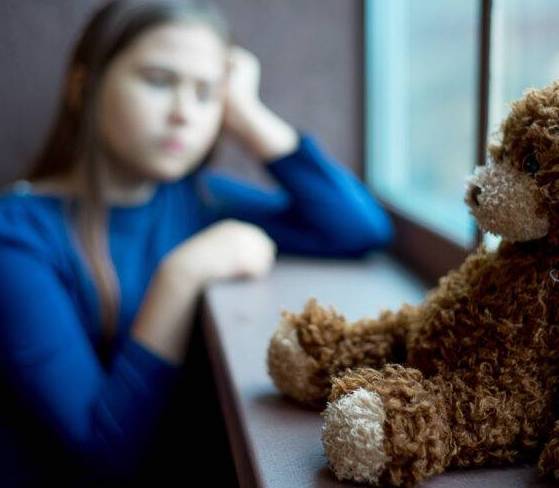 In my case I was first told to tell only one episode of domestic violence saying that there was no need to tell everything, and then in the end he said to me: “Yes, that’s fine, but it only happened once”. And this is because the conclusion must necessarily be that the fault is yours, it is you who want to destroy the father figure. But the truth is that the woman, usually, not only does not want to take away the father but wants to protect the children and wants the father to be helped to have a relationship with the children “.
In my case I was first told to tell only one episode of domestic violence saying that there was no need to tell everything, and then in the end he said to me: “Yes, that’s fine, but it only happened once”. And this is because the conclusion must necessarily be that the fault is yours, it is you who want to destroy the father figure. But the truth is that the woman, usually, not only does not want to take away the father but wants to protect the children and wants the father to be helped to have a relationship with the children “.

Diagnosis of parental alienation, a theory rejected by various sentences of the Supreme Court and now also by the ex Minister of Justice Marta Cartabia, “also made by social workers who have no qualification to do it and who cannot even administer personality tests, as happens instead, because they can only be administered by graduate psychologists to assess whether you are a good parent or not”. From these tests it can come out if you are borderline, paranoid, schizophrenic, and even if “you don’t know you are doing that kind of test, that’s where they can decide that you will harm your child. Tests that are often not even original, therefore manipulable”.
The entrust to the social service
 Paola saw, on the basis of “alienating” accusations, her son taken by the wrists by the carabinieri and dragged into his father’s house where he did not want to go, only to be the taken and locked up in the foster home. She had distanced herself from the child’s father after being threatened and beaten: “I ended up in hospital five times: head trauma, injuries, bruises on the stomach and face. He wanted to go home and wanted the child to be already in bed to sleep while the little one fell asleep late. So, he began to wake him at six in the morning by shaking him, the mattress, removing the covers. I rebelled, and he started beating me, so I reported him”.
Paola saw, on the basis of “alienating” accusations, her son taken by the wrists by the carabinieri and dragged into his father’s house where he did not want to go, only to be the taken and locked up in the foster home. She had distanced herself from the child’s father after being threatened and beaten: “I ended up in hospital five times: head trauma, injuries, bruises on the stomach and face. He wanted to go home and wanted the child to be already in bed to sleep while the little one fell asleep late. So, he began to wake him at six in the morning by shaking him, the mattress, removing the covers. I rebelled, and he started beating me, so I reported him”.
With two indictments for aggravated injuries, however, he obtained from the court the custody of the social service with placement with the father, and this after four years of exclusive custody to the mother, related as a mother with whom the child had “a relationship too positive to be true “, versus a relationship” too negative with the father to be real “. From there, after the appraisal of the technical consultant, the judge’s ruling that places the child in the foster home so that relations with the father are immediately resumed:
“A system that instead of protecting those who have suffered violence has protected the executioner. And this is how my son became his personal instrument of revenge against me”
Boys and girls: voiceless victims
But the silent protagonists of all these events are them, the boys and girls on whose skin this torture, of this massacre, of this incredible injustice that is not seen on the catwalks of November 25 because it is too rough, too disturbing, too uncomfortable. Those who are not listened to, who look helplessly at their desperate mothers, who cry when they are forcibly torn from home or school, who run away and try to hide when they find themselves alone in front of the inevitable, forced to physically confront who is stronger and without a personal conscience.
Like Andrea who was deceived into the hospital where he had been taken because he felt ill during the blood sample which he did not want to do, and who, between his and his mother’s screams, was yanked, picked up with strength as he wiggled his arms, legs and feet, and carried off into the corridors with his mother held in the room.
 Or like Sara, who doesn’t remember it because she was too small, but that she was picked up in front of her house while her mother was taking her to the park in the stroller. Stolen from her mother accused of being affected by a “disorder” which in the future could, perhaps, cause the pseudo-unscientific theory of parental alienation, and which for this was cruelly deprived of the affection of a mother who fought a lifetime to be able to see her again and hug her again after ten years of forced removal.
Or like Sara, who doesn’t remember it because she was too small, but that she was picked up in front of her house while her mother was taking her to the park in the stroller. Stolen from her mother accused of being affected by a “disorder” which in the future could, perhaps, cause the pseudo-unscientific theory of parental alienation, and which for this was cruelly deprived of the affection of a mother who fought a lifetime to be able to see her again and hug her again after ten years of forced removal.
Ask the institutions for help
“I called the father – says the mother crying -, and he laughed. Have you seen? I told you they would give the child to me because I’m rich. Have you seen what happens if you report?” She repeated to me on the phone.
 “Then they took the baby away, I never saw her again “. Every day, after this investigation, I wonder what these children felt when they found themselves alone in front of adult and unknown men who forcibly took them to an unknown place, and found themselves in an anonymous room, without friends, without affection, subjected to mandatory drug therapy, only for having told the discomfort towards a parent who at that moment they did not want to see.
“Then they took the baby away, I never saw her again “. Every day, after this investigation, I wonder what these children felt when they found themselves alone in front of adult and unknown men who forcibly took them to an unknown place, and found themselves in an anonymous room, without friends, without affection, subjected to mandatory drug therapy, only for having told the discomfort towards a parent who at that moment they did not want to see.
What will these men and women of tomorrow bring inside of themselves, and how do their mothers manage to live, who for having asked for help from those institutions that should have protected them, find themselves today having to face this remorse every day, thinking of their children they can’t see and do not know how they are or what they are feeling, away from their loved ones and their environment in a semi-prison condition, without having committed any crime.
* The names in the article are all fictional, there is no real reference to the stories to protect the identity of the survivors and their children, some of them still minors
________________________
Inquiry of Luisa Betti Dakli published by the Italian newspaper Corriere della sera – The “Invisible Crimes” investigation is published on Corriere della Sera, and the full episodes are available with subtitles in English on Donnexdiritti.com and on the newspaper’s YouTube.




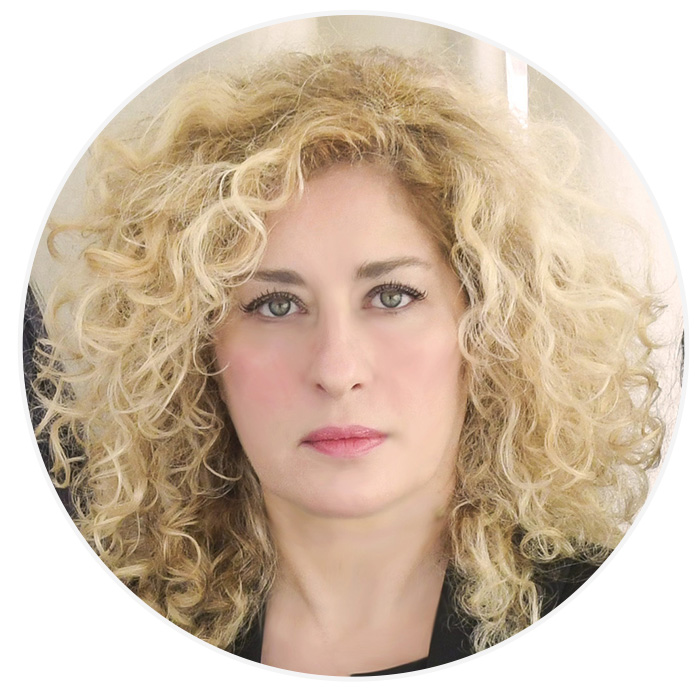 This is the english section of
This is the english section of 